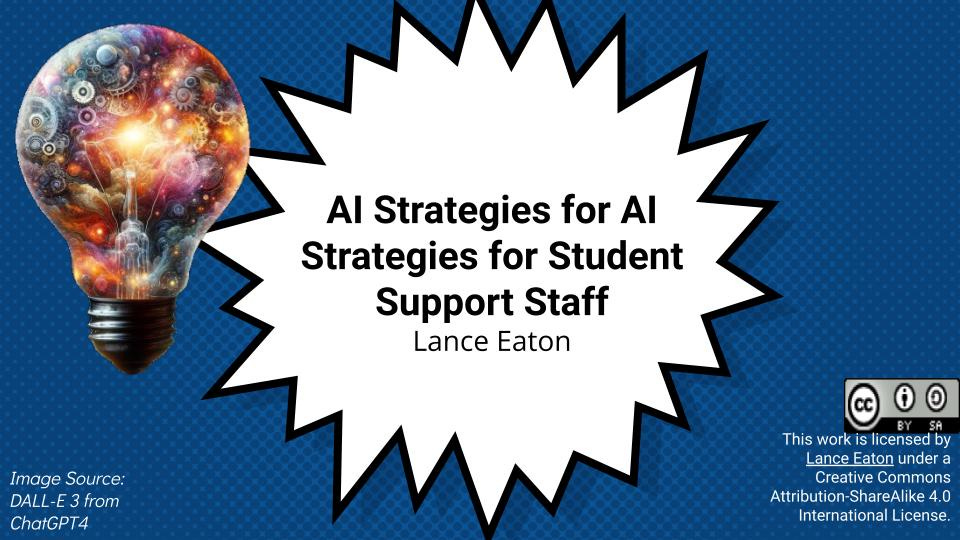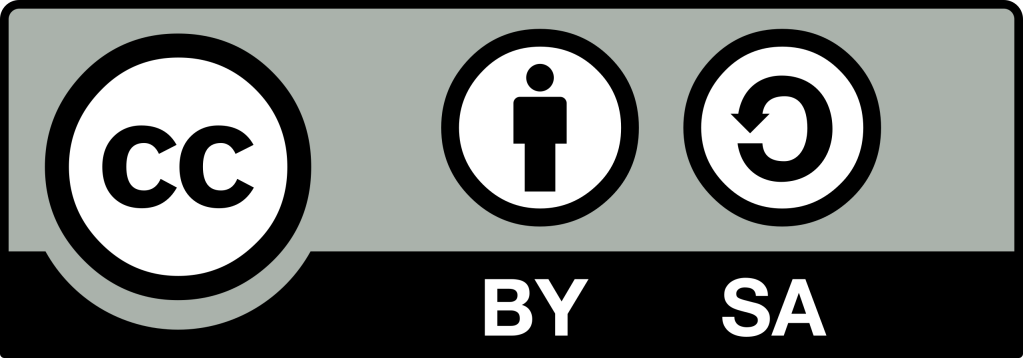Workshop Resources for Student Supports
A workshop for folks in higher ed that support students
I recently had the pleasure of doing a workshop around applications of generative AI with the Student Success division at Suffolk University. I was excited for two reasons. First, the opportunity to engage with other folks in higher ed in addition to faculty energized me and challenged me—things that always put a smile on my face. Second, Suffolk University is the third institution to which I am an alumn that has asked me to talk (North Shore Community College was the first, followed by UMASS Boston…the ball’s in your court, Salem State University—just saying).
I thoroughly enjoyed working to provide a set of approaches, ideas, and opportunities for support staff in a range of offices (disability services, tutoring, international students, study aboard/away, academic coaches, academic advisors, and the administrative staff) to benefit students from a different angle within the institution. I also appreciated the concern, candor, and consideration they brought to the discussion and activities. A lot of learning for everyone—including me—occurred!
Folks who’ve been here know the routine (and for the large group of folks that have shown up in the last month—welcome!): I did the work and I like to share the work so that others can benefit and build upon it.
The slide deck is an ongoing evolving resource that I continue to build, adapt and tweak as I do different talks. You’ll see bits and pieces of different slides that show up across my other presentations over the last 8 months. I didn’t do an annotated slide deck this time but did have a central resource document that linked to all the other content, which is important because the support resources are what really shined. As a workshop, I did an introductory talk and then a few hours of playing with prompts and thinking about what ways these tools might be useful for each team.
Each resource comes with guidance about prompting but then delves into different ways that the area might think about using generative AI followed by some possible prompts to try out.
And, of course, if you are interested in having me work with your staff or faculty, be sure to check out my services to get a sense of what I can offer and also these testimonials from the many colleges and universities that I’ve worked with.
Academic Advising Center Resources
Prompts to Try
Craft a detailed academic improvement strategy for a first-generation college student at the institution who is on academic probation after their first semester. Address potential barriers such as time management, unfamiliarity with university resources, and adjustment to college-level coursework. Include guidance on building relationships with faculty and utilizing first-year experience programs.
Recommend volunteer opportunities within the Boston area that align with the interests of a student majoring in Environmental Science, including potential roles and the benefits of each opportunity.
Rewrite the institution's academic probation policy in simple, clear language suitable for a student handbook. Use bullet points, examples, and a FAQ section to address common misconceptions and concerns.
Administrative & Universal Duties Resources
Prompts to Try
Create a comprehensive event planning checklist for a Division of Student Success orientation, including timeline, budget considerations, and assessment methods.
Develop a set of guidelines for responding to student inquiries and comments on social media platforms, ensuring consistent and helpful communication from the Division of Student Success.
Create a training module for staff on effective communication and problem-solving techniques when addressing student concerns.
Coaching & Academic Success Programs Resources
Prompts to Try
As a student success advisor, I'm working with a first-generation college student who is struggling with time management and feeling isolated on [institution] campus. Create a comprehensive list of 10 campus resources that would be most beneficial for this student, including a brief description of each resource and specific steps on how to access them. For each resource, also provide one actionable tip on how to make the most of it. [Recommend AI tool: Perplexity]
Generate a detailed, step-by-step relaxation technique tailored for a student who experiences physical symptoms of test anxiety (e.g., rapid heartbeat, sweating) 10 minutes before an important exam. Include specific breathing exercises and visualizations that can be done discreetly in a classroom setting.
Propose a time-blocking strategy for a student who has difficulty managing their time effectively. Include detailed guidance on allocating specific time blocks for attending classes, completing assignments, studying, and engaging in leisure activities, with an emphasis on maintaining a balanced lifestyle.
Prompts to Try
Outline a step-by-step guide for implementing extended time accommodations in a 3-hour final exam for a mathematics course, considering both in-person and online testing environments.
Develop a series of role-play scenarios for a faculty workshop on responding to accommodation requests in challenging situations, such as a student requesting extended deadlines for a group project or needing alternative assessment methods for a skills-based course.
Write a comprehensive guide for note-takers supporting students with auditory processing disorders in lecture-based history courses, emphasizing key information capture and organization.
International Education and Study Away Resources
Prompts to Try
Create a timeline-based reminder sequence for students preparing for their study abroad semester. Include 7 key checkpoints from program acceptance to departure, with each reminder highlighting specific tasks, document submissions, and preparation milestones.
Develop a graduation preparation checklist for an international student planning to work in the U.S. after completing their degree. Include items related to OPT application, job search strategies, alumni network connections, and preparations for transitioning from student to professional life in the U.S.
"Design a comprehensive 'Study Abroad Impact Assessment' framework. Include questions to evaluate academic growth, intercultural competence development, personal changes, and career impact. Provide guidelines for analyzing both quantitative and qualitative responses, and suggest ways to use the findings for program enhancement.
Tutoring & Peer-to-Peer Success Services Resources
Prompts to Try
Create a tutorial on using AI tools for real-time grammar checking and style enhancement. Include step-by-step instructions and tips for making the most of these tools.
Develop a comprehensive best practices guide for integrating AI tools into tutoring sessions. Include sections on ethical considerations, maintaining the human touch, and strategies for different subject areas. Provide specific examples and potential pitfalls to avoid.
Analyzing the attached documents on tutoring at our university. Generate a FAQ the succinctly summarizes and directs students to the help they need. [Attach documents]
As for the guidance in prompting, I’ll include it here just in case you are looking for some ideas around that:
Notes about the following prompts:
The categories are not perfectly distinct. There’s inevitably overlap.
The prompts provided here are examples to consider and may apply to staff, student workers, or students.
Many of these prompts focus on a specific topic, but remember that you can easily switch out subjects as needed. Play around with a given prompt.
Wherever there are [brackets] that means you need to enter in something specific. The brackets are placeholders for specific details from you.
Expect it to be imperfect!
Retry the answer or tell it to specifically edit something that it offered.
Some prompts won’t work the way they are intended. Expect that and adjust them or play with them until they work the way you want.
Occasionally, the AI tool will need to be reminded or redirected back on track. Simply tell it to remember the original prompt or goal.
If you are creating an example of something, ask it to repeat the same action for another example, be sure to tell it to make sure it provides something new and different from what it has offered.
Ask follow-up questions and get more out of it. Ask it to add, elaborate, reorder, etc.
Challenge its outputs. Ask “What did you miss in your last answer?” Once it lists what it has missed, ask it to integrate those missing pieces into its answer.
Ask it to improve your prompt. “Please improve the following prompt to maximize the outputs of your large language model: [Insert prompt].”
Need to make it into a brainstorming partner? Turn the AI into an interviewer of you with this prompt: “I am interested in figuring out [topic, issue, idea, plan]. You are to interview me with critical and thoughtful questions to help me achieve [goal]. Ask only 1 question at a time for me to respond to. Check in with me after every fifth question.”
Keep an eye out for prompts or outputs that ask for personal details. If you are using the prompts or sharing them with students, include guidance about making sure they are conscious of privacy issues and not entering personal details.
AI+Edu=Simplified by Lance Eaton is licensed under Attribution-ShareAlike 4.0 International



